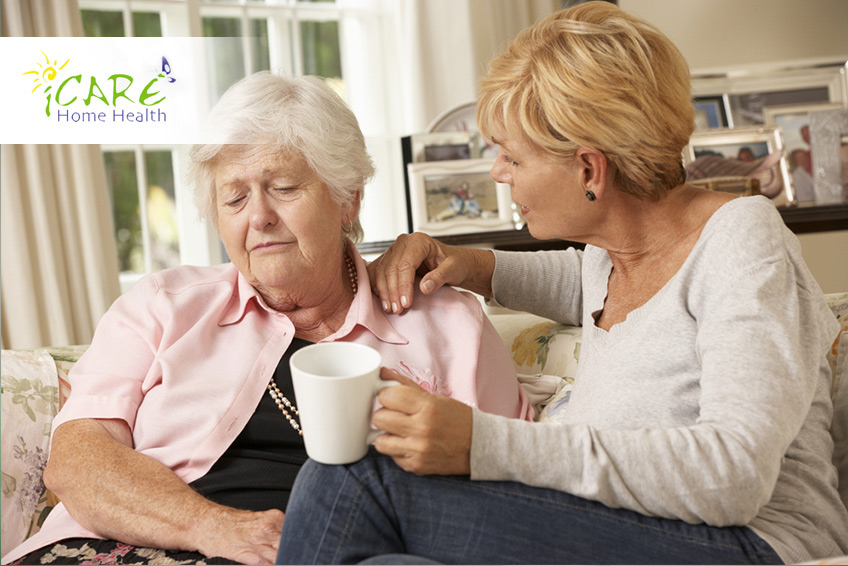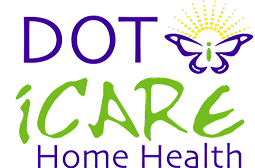Does Mom (or Dad) Have Dementia?

Everyone develops some memory problems as they age. Where did I leave my keys? Which floor did I park on? Where is the dog’s leash? Heavens! I’m only 56 and these are questions I regularly ask myself!
So when Mom or Dad starts to become mildly forgetful, you don’t panic. You see it as a normal consequence of aging; right up there with wrinkles and a new passion for shuffle board (a game I really enjoy, by the way!).
Then you notice that your parent begins to ask the same questions over and over again. If you tell them you’ve already answered the question, they will look confused or even upset. (I answered all my mother’s questions, whether it was the first time she asked, or the tenth.)
Sounds Familiar?
Your mother has had that old kitchen clock on the wall for decades. Now, though, she stares at it, and you slowly begin to realize she is losing her ability to tell the time.
You make the doctor’s appointment the first time Mom asks, with a wavering, frightened-sounding voice, “Where am I?”
Dementia is a cognitive disorder (relating to difficulties with perception, memory, reasoning and judgement) that only a trained professional can diagnose. Your common sense led you to bring your parent to the doctor’s office. Now you sit, with some trepidation, while the doctor puts your parent through a battery of tests. “I’m going to give you three words. Memorize them because I’m going to ask you for them later on. Ready? Rose, truck, church.” The doctor moves on and asks your parent to draw a clock, whose hands show the time 2:30. You notice that Mom has crowded all the numbers on one side of the circle she drew. She never manages to draw the hands of the clock.
“Now what were the three words I asked you to remember?”
Your Mom sits up straight and looks at the doctor intently. “Car, cat, book,” she answers.
The tests show that your parent is reasonably well oriented to time and place. She knows she is in the doctor’s office (although you tell the doctor that sometimes she becomes terribly confused about where she is). She knows the date, more or less.
Brave New World…
The doctor continues to test your parent, and then he finishes. “I’d like your mother to see a gerontologist – a doctor who specializes in the elderly. She obviously has some cognitive difficulties (her brain isn’t working as well as it could). I’d say she has dementia, but I want the specialist to confirm my tentative diagnosis.
And with the doctor’s words, a whole new world opens up for you and for your parent. It’s a hazy world with poorly defined borders. Memory loss, confusion, lack of orientation to time and place…even a sudden aversion to showering (of all things) become your daily companions. Dementia comes in many forms, and it can come on gradually or fiercely fast.
You’re not Alone…
You are not alone. Roughly 564,000 Canadians have dementia, with an estimated 25,000 new cases diagnosed every year. (Dementia numbers in Canada/Alzheimer’s Society of Canada) The best community resource out there for information about dementia is the Alzheimer’s Society of Canada. One telephone call will put you in touch with information, community day programs, suggestions and practical ideas to help you and your parent. I called so often I could have put their number on speed dial!
To live peacefully in this bizarre world, you will need cart loads of patience. Negotiation skills are essential (I’m thinking about how hard it is to get Mom into the aforementioned shower!) And of course, you will need heavy doses of compassion. When my mother had one of her “spells”; when she didn’t know where she was, she would tremble and cry. I always wrapped her in a warm blanket, spoke gentle words of assurance and held her closely, and together we waited for her world to re-orient itself.
Dementia is no picnic. But I have never felt closer to my mother than when I dealt with her difficulties. Oh, I sometimes became exasperated, but I hope I never let it show. It wasn’t Mom’s fault, after all. An impatient person by nature, I suddenly discovered vast stores of patience.
As you care for Mom and Dad please remember that there are thousands of adults caring for elderly parents. You are in good company. Ask for help. Don’t try to do this on your own.
P.S. Visit the blog caringformama.com for more insights into taking care of an elderly parent with dementia.
For Types of, Symptoms, Causes and Tips to deal with Alzheimer and Dementia, visit the iCare Home Health dedicated resource page https://www.icarehomehealth.ca/resources/alzheimers-dementias-in-seniors/

